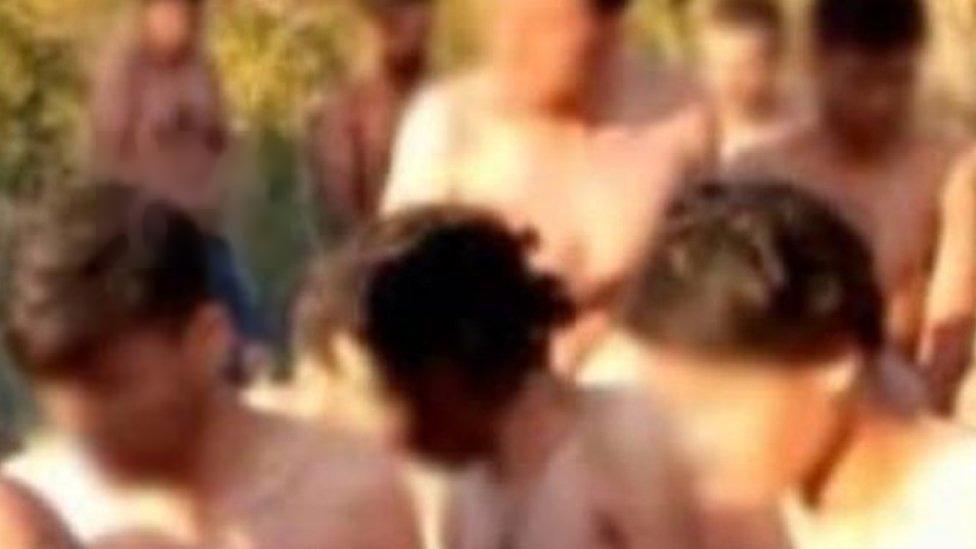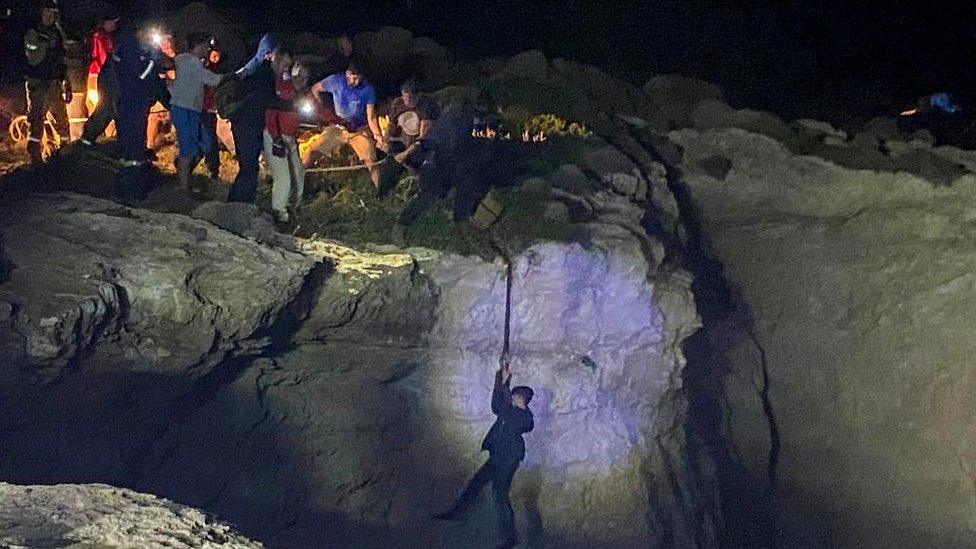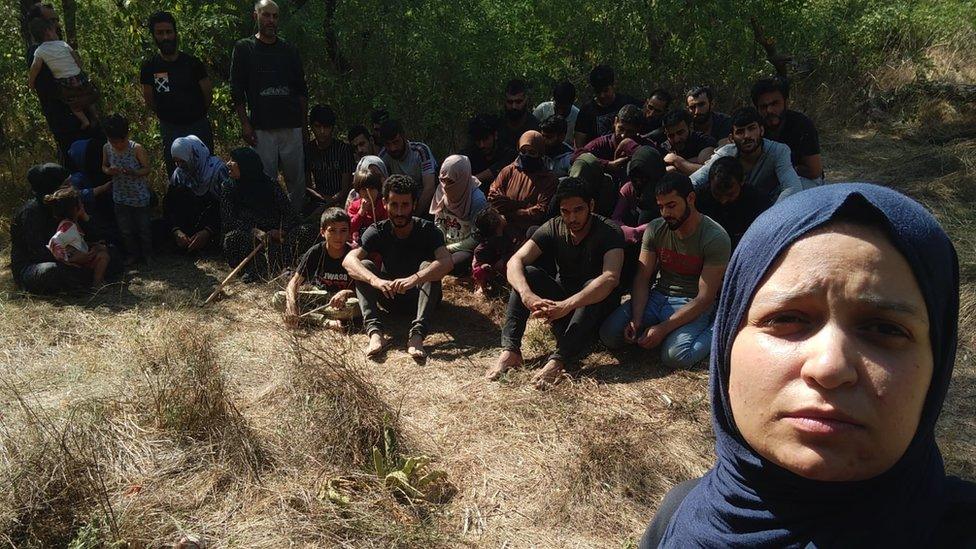UN condemns 'deeply distressing' discovery of 92 naked migrants at Greece-Turkey border
- Published

An image of some of the 92 men was tweeted by Greece's migration minister
The United Nations' refugee agency has said it is "deeply distressed" by the discovery of almost 100 naked men at the border between Greece and Turkey.
The two countries have blamed each other for the plight of the 92 migrants.
Greece laid the blame at Turkey's door, saying its "behaviour" was a "shame for civilisation".
Turkey branded its neighbour's claims as "fake news" and accused it of "cruelty".
As both sides blamed each other, the United Nation's refugee agency called for an investigation and said it was "deeply distressed by the shocking reports and images".
Greek police said they rescued the 92 men who were discovered naked, and some with injuries, close to its northern border with Turkey on Friday.
They said an investigation by them and officials from the EU border agency Frontex, found evidence that the migrants crossed the Evros river into Greek territory in rubber dinghies from Turkey.
"Border policemen... discovered 92 illegal migrants without clothes, some of whom had injuries on their bodies," the statement said.
Greek authorities said the men were immediately given clothing, food and first aid.
It was not clear how and why the men had lost their clothes.
Frontex said the men were mainly from Afghanistan and Syria, and that the organisation's fundamental rights officer had been informed of a potential rights violation.
Greek minister for civil protection, Takis Theodorikakos, accused Turkey of "instrumentalising illegal immigration" in the latest in a row over migration between the neighbours.
Speaking on Greek television he claimed that many of the migrants had told Frontex that "three Turkish army vehicles had transferred them" to the river which acts as a border between the two countries. The BBC has not been able to independently verify this claim.
"One would expect a working explanation from the Turkish government's side," Mr Theodorikakos said.
A day earlier, Greek Migration Minister Notis Mitarachi said in a tweet that Turkey's treatment of the migrants was a "shame for civilisation". He said Athens expected Ankara to investigate the incident and "protect... its border with the EU".
The dispute has reached the highest level of government in Turkey, with tweets on behalf of the president denying any responsibility for what had happened and blaming Greece for the "inhuman" situation.
"The Greek machine of fake news is back at work," President Recep Tayyip Erdogan's top press aide Fahrettin Altun wrote on the social media site.
He described the allegations as "futile and ridiculous", accusing Greece of not respecting the refugees by posting their pictures.
In response, the UNHCR said it is "deeply distressed by the shocking reports and images", but said it had not been able to speak to the group directly yet - something which it hoped would happen in the coming days.
"We condemn any cruel and degrading treatment and call for a full investigation," the UNHCR told the BBC.
The discovery of the men comes days after a leaked report by an EU agency criticised some senior staff at Frontex for covering up illegal pushbacks of migrants by Greece to Turkey, something Athens denies. Frontex says such practices by its staff are a thing of the past.
Last month, Turkish President Recep Tayyip Erdogan used a UN address to accuse Greece of transforming the Aegean Sea into a "cemetery" and said it had "oppressive policies" on immigration.
Greece was on the frontline of a European migration crisis in 2015 and 2016, when around a million refugees fleeing war and poverty in Syria, Iraq and Afghanistan arrived in the country, mainly via Turkey.
The number of arrivals has fallen since then, but Greek authorities said they had recently seen an increase in attempted arrivals through the Turkish land border and the Greek islands.
Greece has urged Turkey to respect a 2016 deal with the European Union in which Ankara agreed to contain the flow of migrants to Europe in exchange for billions of euros in aid.
Athens will soon extend a 25-mile (40-kilometre) fence along its northern border with Turkey to prevent migrants from entering the country, Mr Theodorikakos said.
Related topics
- Published6 October 2022

- Published16 August 2022
